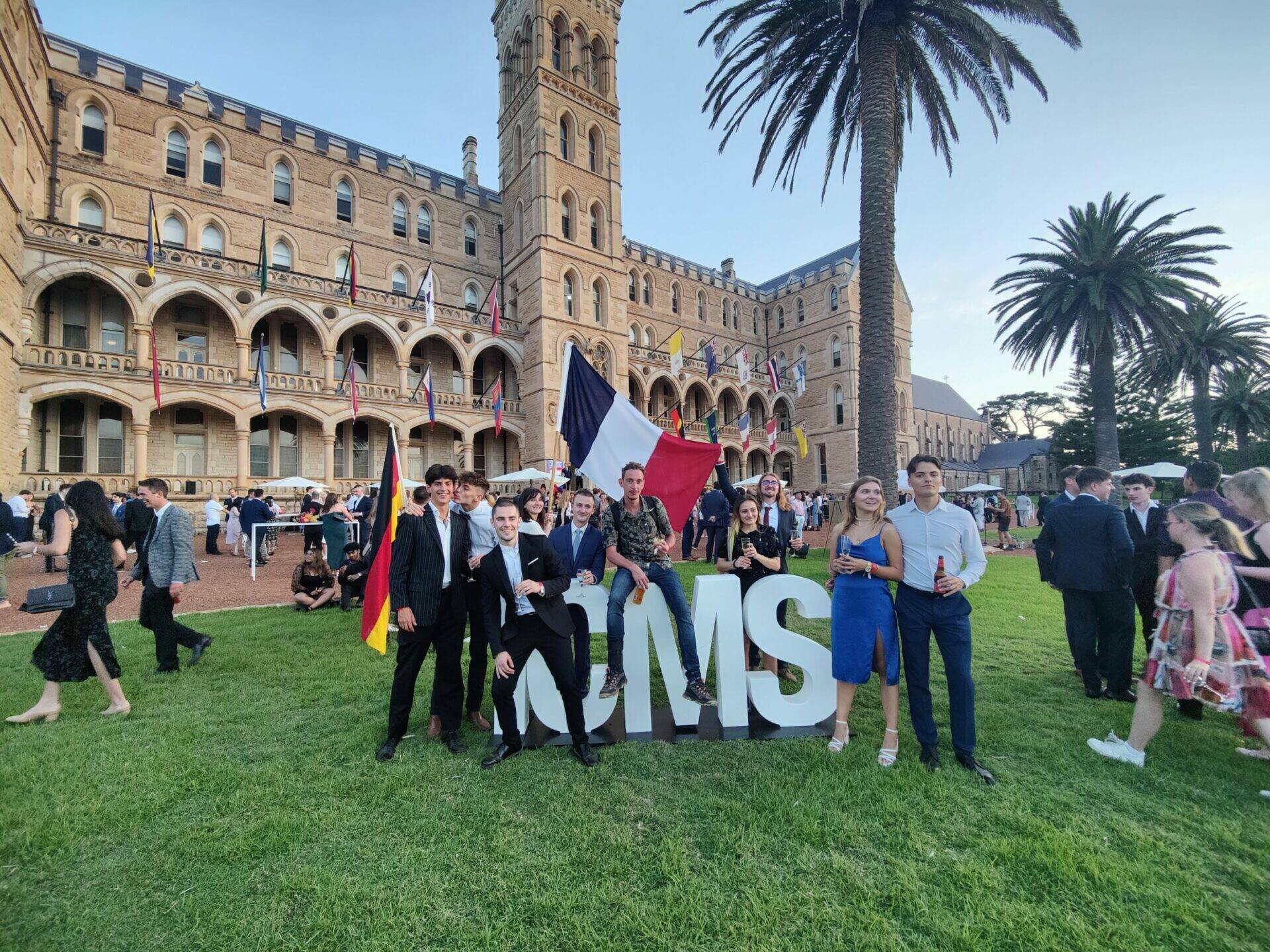Brand Image Manager
HOW TO BECOME A BRAND IMAGE MANAGER
Several years ago, major corporations decided to place a bet on a stronger merchandising and capitalization of their brand. This focus is what originated brand coaching and the job of brand image manager, also called digital manager.
What is a Brand Image Manager?
Each brand has a specific image. To stand out from the competition, a brand must communicate around a universe and values that consumers distinctly associate with it. The first ambassadors that help root this identity in society are the company’s employees. Indeed, by building loyalty to their company and thereby to the brand, they promote and represent it to end customers. They are the ones who convey the brand’s personality and history through its activities.
Meanwhile, the boom of digital technology has provided extremely powerful new tools for circulating products and services to a much larger audience. Brand image managers are at the center of this communication strategy. They are the custodians of the consistency of the values of the marketed product range. They are responsible for monitoring the development of the reputation of the company for which they work and for observing trends.
What are the duties of a brand image manager?
Their primary task is to define the identity to associate with their client. This identity must also be reflected visually. For example, Nike decided to build an image based on self-transcendence: “Just do it”. This is actually the company’s core business, as it mainly sells sports equipment. The comma and the name reflect this focus on dynamism because they are inspired from the wings of Niké, goddess of victory.
Once the image is defined with an optimized narrative, brand image managers must convey the history and the values of the brands by implementing a development strategy. The term encompasses the communication plan and distribution channels that will help them reach their goal which is to promote the company’s brand and, consequently, its products.
Then, brand managers implement several actions. In terms of communication, they use social networks as well as traditional media to increase brand visibility. For example, Adidas perfectly captured the communication space throughout the Euro 2016 soccer championship, becoming the most popular brand during the competition. Another effective initiative is to create partnerships publicized through press releases or advertisements.
One of the most coveted actions, and therefore one of the most expensive, is placing an ad during the Super Bowl. This event attracts 110 million American viewers and is broadcast in over 180 countries. At $5 million for a 30-second ad, it is better to aim for high impact to build brand awareness.
Similarly, brand image managers also include promotional operations as part of their strategy. These involve point-of-sale events in conventional retail outlets. An example of such an initiative are games.
The administrative aspect of the brand image manager job concerns the budget. Brand image managers are also in charge of drawing up and monitoring a budget, and finally adapting it in line with their assessment of the marketing actions carried out.
Key qualities and skills required of a brand image manager
The diversity of the brand image manager’s role calls for a broad range of skills. Brand managers must be able to define a customer typology, master web analysis tools, planning or office automation tools. They must also demonstrate outstanding accounting, administration as well as project management skills. Therefore, brand image managers should be:
- Thorough, to properly carry out their management tasks
- Attentive, to identify trends in their industry. Whether commercial or marketing, these trends help brand image managers support their strategy
- Born managers, because the ability to work as a team, good interpersonal skills and active listening are central to the role
They must also be able to demonstrate creativity and innovation. Their role consists in streamlining a brand’s image and narrative to build trust with customers, and to ensure they can identify with the products. However, before securing the loyalty of existing customers, they must promote the company to a highly solicited target audience. To this end, they must find creative ways to stand out from the competition.
Salary and career prospects for brand image managers
Salary depends on the brand’s image experience. Entry-level professionals may expect to earn €3,000 gross monthly, and somewhere between €4,000 and €5,000 gross monthly after four- or five-years’ experience.
As the need for this expertise is growing, there are job vacancies in different types of structures, with three recurring categories: sports equipment manufacturers, mass retailers and marketing strategy consultancies.
However, this position is usually accessible following a first experience as assistant brand manager or product manager. Therefore, with hard work, observation and on-the-job training, future image brand managers will be able to achieve their goal and defend a brand image they create from scratch.
What qualifications are required to become a brand image manager?
A bac+3 level is required to assimilate all the knowledge needed for this position. Students will acquire a dual sales and marketing profile, two fundamental aspects of this profession. Carrying out a marketing study and then a marketing plan, implementing a promotional campaign, designing product promotion media and identifying areas for development are just some of the skills that this first part of the course trains the future brand manager in. Business school is therefore a good option.
However, if you want to specialize in the sports sector straight from high school, a Bachelor’s degree specifically in Sports Professions is just what you need. It teaches the fundamentals of general culture, economics and finance, with the added advantage of being taught through the prism of sport. Digital marketing, direct marketing, strategic marketing or international marketing, all the branches of the marketing field will no longer hold any secrets for him.
Before entering the job market, it is advisable to obtain a Bac+5 to acquire the essential managerial skills. Continuing on to a Master’s degree in Sport Business is also possible. Earning an additional degree in the sector will enable you to aspire to positions of responsibility more quickly.
Each brand has a specific image. To stand out from the competition, a brand must communicate around a universe and values that consumers distinctly associate with it. The first ambassadors that help root this identity in society are the company’s employees. Indeed, by building loyalty to their company and thereby to the brand, they promote and represent it to end customers. They are the ones who convey the brand’s personality and history through its activities.
Meanwhile, the boom of digital technology has provided extremely powerful new tools for circulating products and services to a much larger audience. Brand image managers are at the center of this communication strategy. They are the custodians of the consistency of the values of the marketed product range. They are responsible for monitoring the development of the reputation of the company for which they work and for observing trends.
Their primary task is to define the identity to associate with their client. This identity must also be reflected visually. For example, Nike decided to build an image based on self-transcendence: “Just do it”. This is actually the company’s core business, as it mainly sells sports equipment. The comma and the name reflect this focus on dynamism because they are inspired from the wings of Niké, goddess of victory.
Once the image is defined with an optimized narrative, brand image managers must convey the history and the values of the brands by implementing a development strategy. The term encompasses the communication plan and distribution channels that will help them reach their goal which is to promote the company’s brand and, consequently, its products.
Then, brand managers implement several actions. In terms of communication, they use social networks as well as traditional media to increase brand visibility. For example, Adidas perfectly captured the communication space throughout the Euro 2016 soccer championship, becoming the most popular brand during the competition. Another effective initiative is to create partnerships publicized through press releases or advertisements.
One of the most coveted actions, and therefore one of the most expensive, is placing an ad during the Super Bowl. This event attracts 110 million American viewers and is broadcast in over 180 countries. At $5 million for a 30-second ad, it is better to aim for high impact to build brand awareness.
Similarly, brand image managers also include promotional operations as part of their strategy. These involve point-of-sale events in conventional retail outlets. An example of such an initiative are games.
The administrative aspect of the brand image manager job concerns the budget. Brand image managers are also in charge of drawing up and monitoring a budget, and finally adapting it in line with their assessment of the marketing actions carried out.
The diversity of the brand image manager’s role calls for a broad range of skills. Brand managers must be able to define a customer typology, master web analysis tools, planning or office automation tools. They must also demonstrate outstanding accounting, administration as well as project management skills. Therefore, brand image managers should be:
- Thorough, to properly carry out their management tasks
- Attentive, to identify trends in their industry. Whether commercial or marketing, these trends help brand image managers support their strategy
- Born managers, because the ability to work as a team, good interpersonal skills and active listening are central to the role
They must also be able to demonstrate creativity and innovation. Their role consists in streamlining a brand’s image and narrative to build trust with customers, and to ensure they can identify with the products. However, before securing the loyalty of existing customers, they must promote the company to a highly solicited target audience. To this end, they must find creative ways to stand out from the competition.
Salary depends on the brand’s image experience. Entry-level professionals may expect to earn €3,000 gross monthly, and somewhere between €4,000 and €5,000 gross monthly after four- or five-years’ experience.
As the need for this expertise is growing, there are job vacancies in different types of structures, with three recurring categories: sports equipment manufacturers, mass retailers and marketing strategy consultancies.
However, this position is usually accessible following a first experience as assistant brand manager or product manager. Therefore, with hard work, observation and on-the-job training, future image brand managers will be able to achieve their goal and defend a brand image they create from scratch.
A bac+3 level is required to assimilate all the knowledge needed for this position. Students will acquire a dual sales and marketing profile, two fundamental aspects of this profession. Carrying out a marketing study and then a marketing plan, implementing a promotional campaign, designing product promotion media and identifying areas for development are just some of the skills that this first part of the course trains the future brand manager in. Business school is therefore a good option.
However, if you want to specialize in the sports sector straight from high school, a Bachelor’s degree specifically in Sports Professions is just what you need. It teaches the fundamentals of general culture, economics and finance, with the added advantage of being taught through the prism of sport. Digital marketing, direct marketing, strategic marketing or international marketing, all the branches of the marketing field will no longer hold any secrets for him.
Before entering the job market, it is advisable to obtain a Bac+5 to acquire the essential managerial skills. Continuing on to a Master’s degree in Sport Business is also possible. Earning an additional degree in the sector will enable you to aspire to positions of responsibility more quickly.






